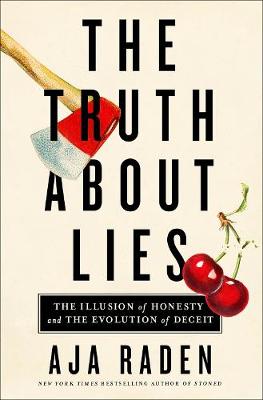
Lying is pervasive. So pervasive that we have almost as many words for it as the Aleutians have for snow: prevaricating, fibbing, stretching the truth, of omission, of commission. Dividing her large topic into three sections - The Lies We Tell Each Other, The Lies We Tell Ourselves, and The Lies We All Agree to Believe - Raden's book is as much about belief as about deceit.
Buttressed by a winning mixture of history, psychology and science, Raden explores everything from swindles to cons to the long game to the big lie, including:
-Why anyone still plays a shell game and gambles when they know the house is stacked against them
-Goldbricking and the misleading nature of "facts"
-Why faith and fraud are so closely connected
-Hoaxes, hysteria and the madness of crowds
-Why we're all probably part of a pyramid scheme
-How the truth can sometimes sound like a lie
A zippy, funny, and informed history that adds fresh detail even to well-known stories (we all remember what Orson Welles' "War of the Worlds" radio broadcast hoax was, but did you know that a number people committed suicide when they heard the aliens were upon us?), Raden's book is more primer than morality play. As she writes in her introduction: "Not that you're gonna do it, but if you were gonna do it, here's how you'd do it."
Thought Provoking, But Could Have Used More Documentation. This is a very thought provoking book that looks at lies and how we deceive both ourselves and others, using scams from prehistory all the way through the 2010s. In its examinations of how we deceive both ourselves and each other, it seems to this reader to be very well reasoned, very well thought out, and very well written. Lots of education, a fair degree of humor, and (warning to those "sensitive" to it), a few F-bombs to boot. Indeed, the one main weakness here is the dearth of its bibliography - coming it at just 6% ish of the text rather than the more common 25-30% of well-documented nonfiction texts. Also, the cover - I don't believe Washington and the (very likely apocryphal, and thus... a lie) story of his childhood cherry tree is ever mentioned in the text. So the cover lies... which may be the point. ;) Overall a superb book, but the bibliography issue knocks it down a star. Very much recommended.
Reading updates
-
Started reading
-
14 December, 2020:
Finished reading
-
14 December, 2020:
Reviewed
